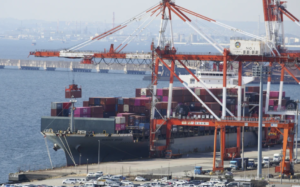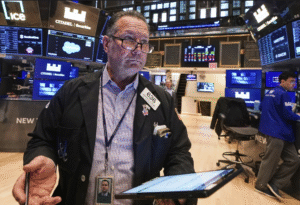TikTok has resumed services for its 170 million U.S. users after President-elect Donald Trump announced he would issue an executive order to delay a ban on the app. The Chinese-owned platform had stopped functioning for American users on Saturday evening, following the activation of a law banning TikTok over national security concerns. However, Trump, who had previously supported the ban, stated on Sunday that he would postpone enforcement of the law to allow more time for a potential deal.
Following Trump’s announcement, TikTok began restoring service and displayed a message to its users thanking the incoming president. The company expressed gratitude for the “clarity and assurance” provided by Trump and emphasized its commitment to working with him to find a long-term solution that would allow TikTok to remain in the U.S. TikTok CEO Shou Chew is expected to attend President-elect Donald Trump’s inauguration on Monday. On Sunday, Trump posted on his Truth Social platform, urging companies not to let TikTok go offline. He announced that he would sign an executive order on Monday to delay the law banning the app, giving more time to reach a deal that would address national security concerns.
TikTok’s parent company, ByteDance, had previously ignored a law requiring the sale of its U.S. operations to avoid a ban. The law, which was upheld by the Supreme Court on Friday, went into effect on Sunday. It remains unclear what legal authority Trump has to delay the law’s implementation, but it’s expected that his administration will not enforce the ban if he issues the executive order. This marks a shift in Trump’s stance, as he had originally supported a TikTok ban but has recently expressed a “warm spot” for the app, citing the popularity of his campaign videos on the platform.
Meanwhile, the Biden administration had already stated that it would not enforce the law during its final days in office, allowing the matter to be handled by the incoming Trump administration.
On Saturday evening, TikTok temporarily suspended its services in the U.S., despite later restoring access on Sunday following President-elect Donald Trump’s intervention. TikTok is incredibly popular among U.S. users and has become an essential tool for American political campaigns targeting younger voters. According to a law passed last April, TikTok was required to be removed from app stores and web-hosting services unless its Chinese parent company, ByteDance, sold its U.S. operations. TikTok argued that this law violated its users’ free speech rights.
The law received bipartisan support in Congress and was upheld by the Supreme Court earlier this week. The situation highlights a divide within the Republican Party on national security concerns. Trump’s pick for Secretary of State, Marco Rubio, had strongly supported the ban, arguing that TikTok extended the Chinese Communist Party’s influence in the U.S. However, he deferred to Trump when asked whether he supported the president-elect’s efforts to lift the ban, saying he would work for the president if confirmed.
Following Trump’s move to delay the ban, Senate Intelligence Committee Chair Tom Cotton, a Republican from Arkansas, publicly disagreed. He warned that any company assisting TikTok in staying online could face significant legal consequences, including massive financial liabilities under both federal law and securities regulations.
An executive order that contradicts existing law could face legal challenges in court. Several states have also filed lawsuits against TikTok, raising the possibility that local jurisdictions could impose a ban even if the app remains available nationally. Although TikTok was restored for existing users on Sunday, the situation remains unclear regarding whether third-party services—like hosting platforms or app stores such as Google and Apple—can continue supporting TikTok in the U.S. The app had been removed from these platforms in anticipation of the ban.
University of Richmond law professor Carl Tobias described the situation as “murky.” President-elect Trump, in a post on Truth Social, promised to shield companies from liability, which could allow TikTok to return to Apple and Google stores. He stated that his executive order would ensure companies helping to keep TikTok online wouldn’t face legal consequences. However, during Supreme Court hearings, Solicitor General Elizabeth Prelogar argued that an executive order cannot retroactively change the law. Justice Sonia Sotomayor agreed, emphasizing that the legal reality for companies wouldn’t change based on the new president’s actions.
Professor Tobias noted that the law includes a provision allowing the president to delay the ban for up to 90 days if significant progress is made in addressing national security concerns. However, it’s unclear whether these conditions have been met. He suggested that Trump should work with Congress to avoid potential legal conflicts and leave fewer unanswered questions. Tobias added that the full impact of Trump’s executive order won’t be clear until it’s officially issued.














